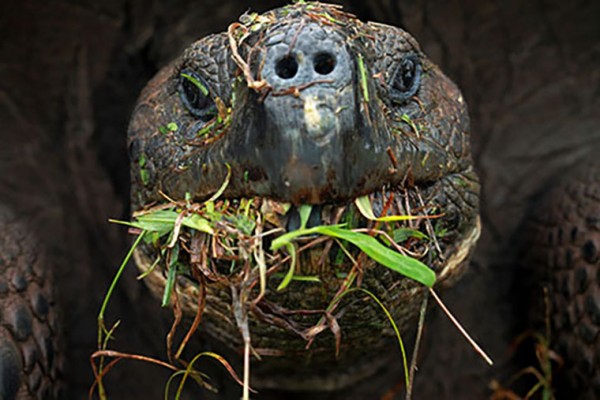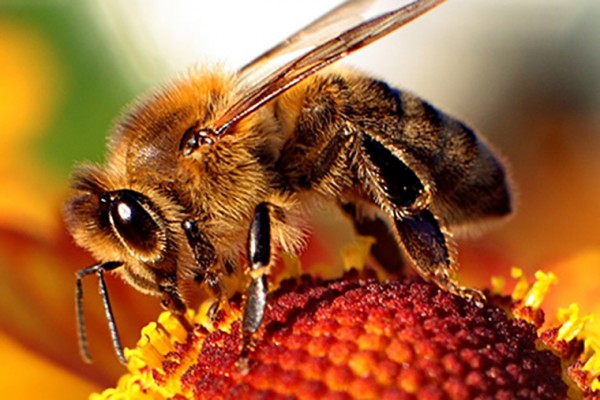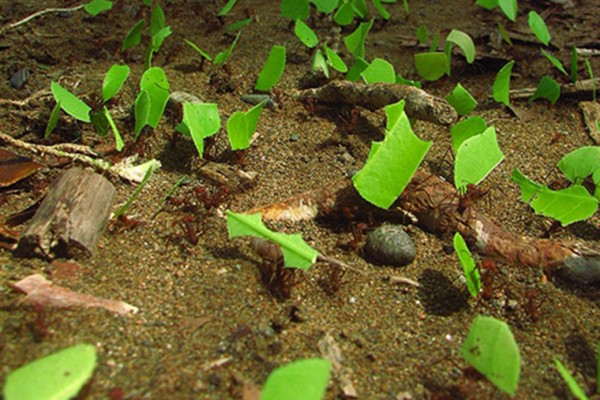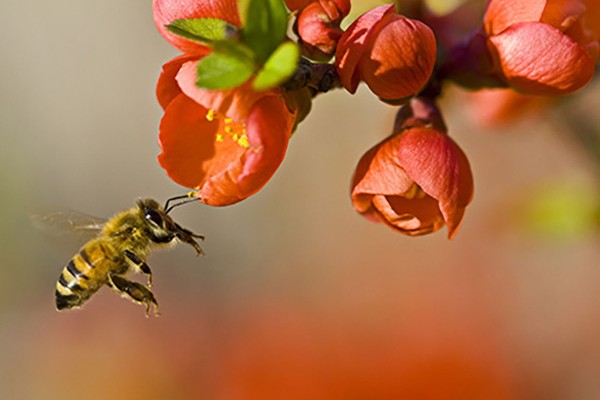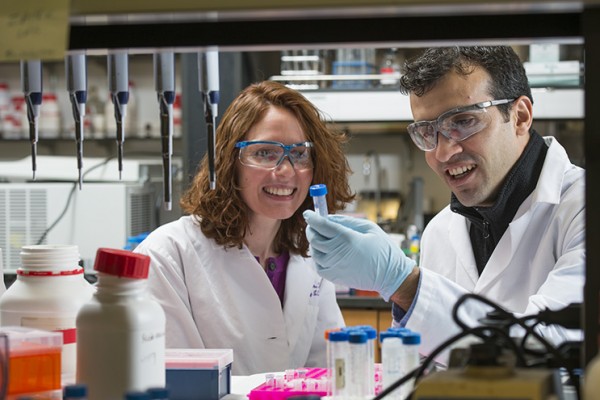Massively parallel biology students
The list of authors for an article on the comparative genomics of a fruit fly chromosome, published online May 11 by the journal G3, includes 940 undergraduates from 63 institutions. It is the result of an effort, coordinated through Washington University in St. Louis, to provide many more students with a hands-on research experience than has traditionally been possible.
Schefkind receives Stalker Award
Adam Schefkind has been selected to receive the 2015 Harrison D. Stalker Award from the Department of Biology in Arts & Sciences at Washington University in St. Louis.
Pierson wins Spector Prize
This year, the Spector Prize, given by the Department of Biology in Arts & Sciences at Washington University in St. Louis, has been awarded to Will Pierson. Pierson worked in the lab of Hani Zaher, PhD, assistant professor of biology.
Endangered tortoises thrive on invasive plants
Introduced plants make up roughly half the diet of two subspecies of
endangered tortoise, field research in the Galapagos reveals. Tortoises seem to prefer non-native to native plants and the plants may help them to stay well-nourished during the dry season.
Manganese speeds up honey bees
The industrial metal manganese, once scarce, is now ubiquitous in our environment. New work suggests that it addles honey bees, which often act as sentinel species for environmental contaminants, even at levels considered safe for humans.
Is blood really thicker than water?
The outcome of a duel between mathematical models supports the reigning theory of the genetics of altruism. Called inclusive fitness, it says altruism is competitive if it benefits relatives carrying the same gene as the selfless individual. Attacked by a Nature article published in 2010, it is defended by Washington University evolutionary biologist David Queller.
Biologist Dixit receives CAREER award from NSF
Ram V. Dixit, PhD, assistant professor of biology in Arts & Sciences at Washington University in St. Louis, received a five-year, $1,163,940 Faculty Early Career Development (CAREER) award from the National Science Foundation to study mechanisms underlying plant cell morphogenesis.
Stressed bees die sooner, leading to abrupt collapse of colonies
Pathogens, pesticides and nutritional deficits have previously been identified as stressors linked to colony collapse disorder, but it was a mystery why bee colonies sometimes collapsed so rapidly, leaving bee keepers with an empty hive box. A new study suggests that when a colony is stressed, young bees are forced to become foragers much sooner than they otherwise would and this accelerated development leads to their early death.
How bacteria control their size
New work shows that bacteria (and probably other cells as well) don’t double in mass before dividing. Instead they add a constant volume (or mass) no matter what their initial size. A small cell adds the same volume as a large cell. By following this rule a cell population quickly converges on a common size.
It’s not always the DNA
Scientists have mostly ignored mRNA, the molecule that ferries information from DNA to the cellular machines that make proteins, because these DNA transcripts are ephemeral and soon destroyed. But mRNA can be just as
important as DNA scientists at Washington University in St. Louis say. They found that oxidized messenger RNA jams the cellular machines that
make protein. The failure to clear the jams and chew up bad messengers
is associated with neurodegenerative diseases such as Alzheimer’s.
View More Stories


